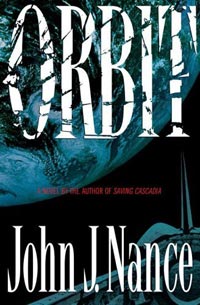Review: Orbitby Tom Hill
|
| Orbit pulls together a lot of elements: action, family, philosophy, religion, and, commercial vs. government spaceflight; yet manages to keep the subjects light throughout. |
The canvas the story is painted on is realistic as well. NASA, rife with political (and personal) tensions about commercial spaceflight, chafes under an executive order to mount a rescue mission they told commercial providers wasn’t possible. Other nations are interested in helping out as the story develops, but there’s no standard rescue protocol. Air Force Space Command is also a player in the drama, which I found to be interesting since I once served within it. Lieutenant Colonel Nance (the author is a member of the Air Force Reserve) applies his military experience to these portions of the book. He sometimes resorts to stereotypes (“General’s wives are more like mistresses with commissary privileges”), though those stereotypes wouldn’t exist if there wasn’t some truth to them. As a pilot, Nance’s descriptions of the aircraft operations have a gritty, been-there feel, and this follows into most of the space operations as well. The techie reader will have an occasional “Aha!” moment and catch a technical error, but most of them are necessary for the story and well within writer’s privilege.
Orbit pulls together a lot of elements: action, family, philosophy, religion, and, commercial vs. government spaceflight; yet manages to keep the subjects light throughout. A group of people who read this book would have a difficult time discussing all the angles in an afternoon.
One interesting point for me is that the category listing on the back of the book is “fiction” as opposed to the more specific “science fiction.” While I would definitely put it in the latter category, this may be an attempt to gain wider appeal for the work, as a science fiction label tends to drive away some discriminating readers.
I found Orbit to be a quick, fun read, great to take along for the family vacation. There are some wonderful visuals described within it and it would probably make a good movie as well.
